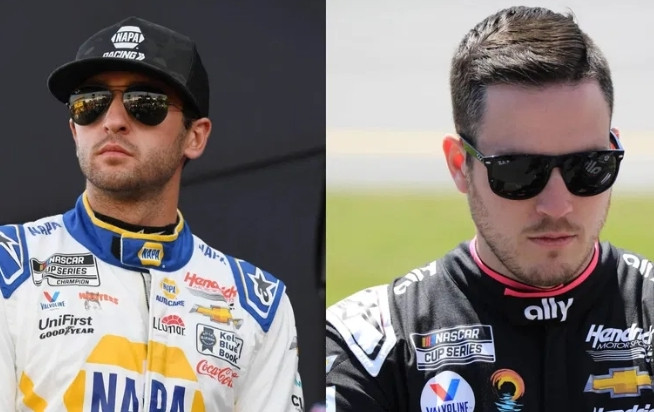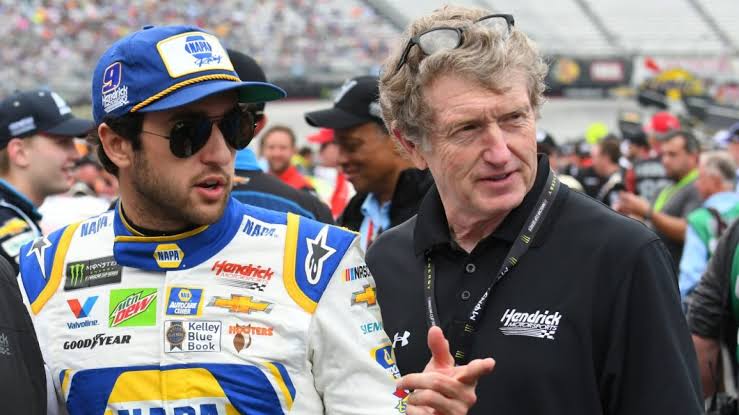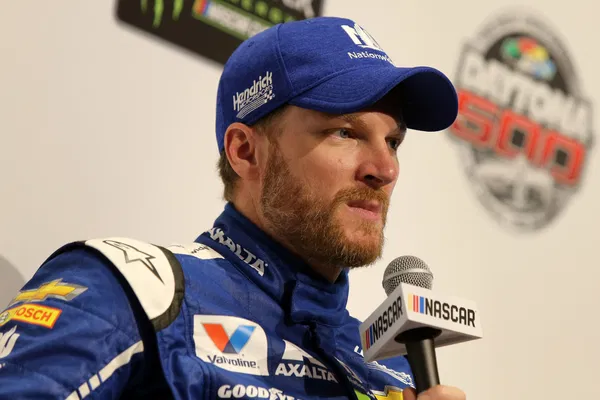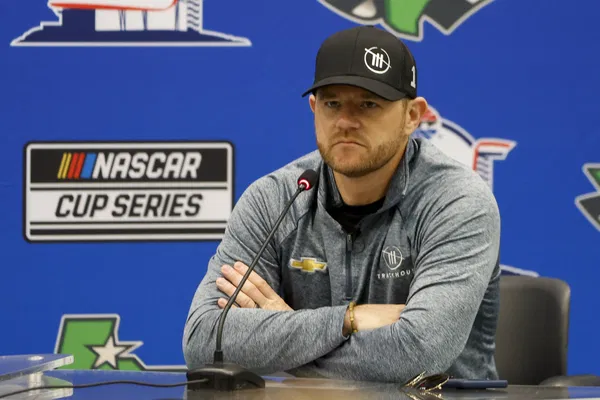Alex Bowman’s playoff hopes were shattered at the Roval race, but not because of his driving. NASCAR officials discovered that Bowman’s #48 car was underweight during post-race inspections, a violation that stripped him of his playoff spot just as he was gaining momentum. While many expected Bowman’s team to fight the penalty, they chose to accept it quietly, sparking mixed reactions from fans and insiders alike.
Chase Elliott, always quick to stand by his teammates, defended Bowman’s team, arguing that the weight issue likely had no impact on his performance. Elliott’s support highlighted the pressures every NASCAR team faces—finding ways to gain an edge without stepping over the line. In this case, Bowman’s team went too far, but the penalty has opened up a conversation about the fine line between competition and violation.
In NASCAR, car setup is everything. Crew chiefs and engineers spend countless hours trying to extract every ounce of performance. However, in today’s Next-Gen era, teams are restricted by standardized parts supplied by NASCAR’s licensed vendors. This has left little room for creative adjustments, forcing teams to push boundaries in ways that might seem minor but can have serious consequences. For Bowman’s team, it wasn’t clear whether the weight adjustment was deliberate, but NASCAR’s decision made it clear that they had crossed the line.

Blake Harris, Bowman’s crew chief, is at the center of this controversy. Whether the weight issue was intentional or not, the ruling was swift and harsh, leading to Bowman’s sudden playoff exit. Fans are divided—some see the violation as a reckless move, while others sympathize, understanding the tight margins NASCAR teams operate within. But no matter how it’s viewed, the penalty sent a clear message: the rules leave no room for error.
Elliott’s response to the situation was telling. He acknowledged that teams like Hendrick Motorsports are constantly walking a fine line between innovation and compliance. “You have to push the boundaries as much as you can,” Elliott said, recognizing that every team is trying to find that extra bit of performance. But in Bowman’s case, that push went a bit too far, resulting in a costly lesson for the team.
Bowman’s playoff dreams were derailed by a technical violation, but the broader issue is clear: in today’s NASCAR, even the smallest misstep can have enormous consequences. As teams continue to search for ways to stay competitive, the line between success and penalty will only get thinner.
What do you think of Bowman’s penalty? Share your thoughts below!




